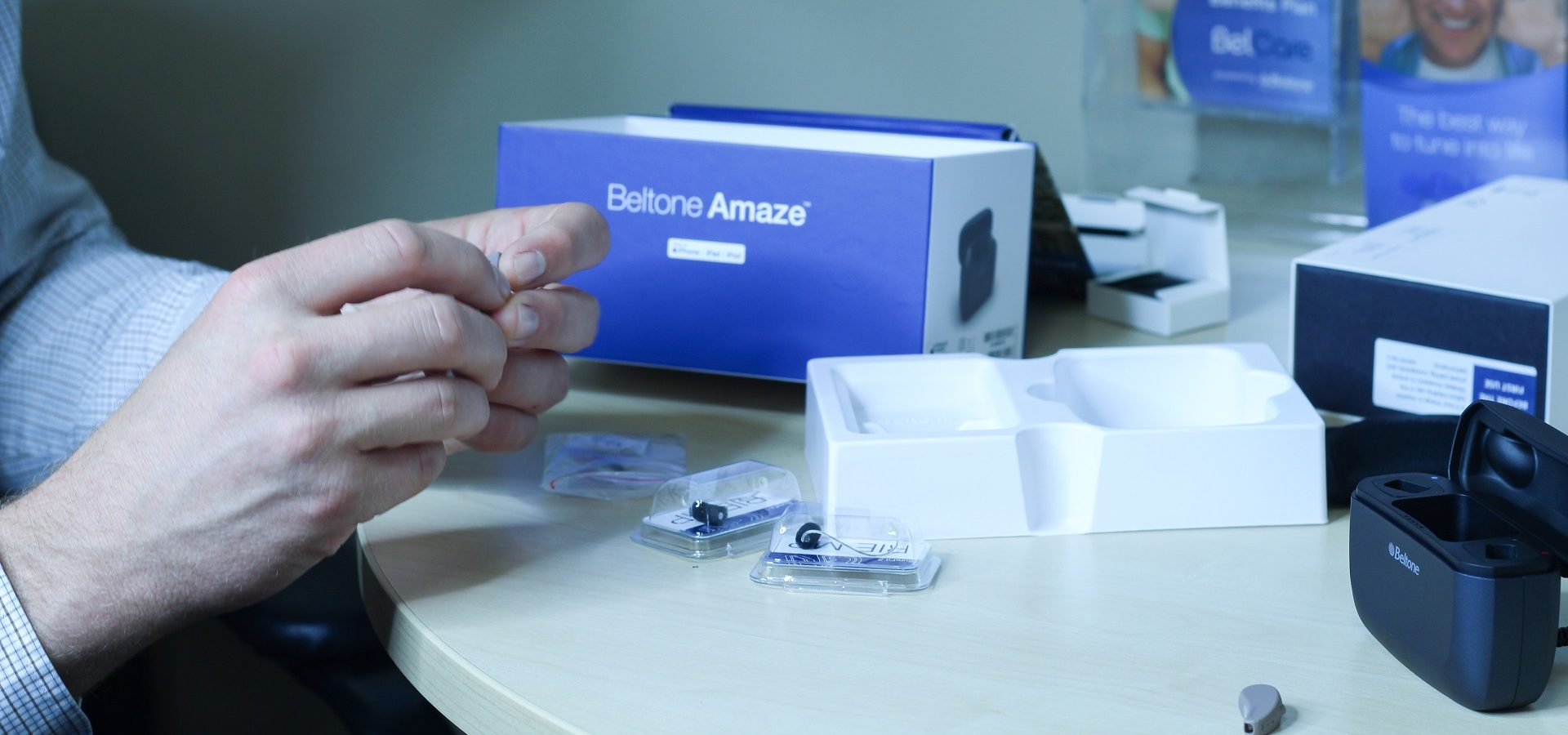Menu

Are your new hearing aids causing you discomfort? Do they have the sensation of being overly tight or rubbing? If this is the case, you may believe that your hearing aids require repair. On the other hand, hearing aid pain is not unusual when you first get fitted with technology. It may happen for many causes, and we have remedies for all of them!
Your hearing aids should be comfortable when you initially get them fitted. However, like with anything new, getting used to them may take some time. Check with your physician; they may recommend wearing them 3–4 hours per day for a week, then gradually increasing your use. It’s critical to keep wearing your technology for longer periods!
However, suppose irritation or pain persists after the first few days. In that case, it is critical to consult with your hearing care professional as soon as possible to determine what is causing the problem. Here are some possible causes of hearing aid pain, irritation, or discomfort:
1. The Material
If you’re experiencing discomfort or pain, you may want to try a different ear tip or a different ear tip size. There are a few different types of ear tips available, and a few different sizes for each type. Determining which works best for you is an important part of the fitting process, and once you’re comfortable with the size of your ear tip, it’s important to continue to wear it as you increase the amount of hours you’re wearing your hearing aids.
2. The Fit
If your hearing aids are fitting too tightly, they may be pressing against the walls of your ear canal, causing irritation or pain. This can be caused by the hearing aid being too deep in the canal. If the ear mould is too small, or the tip is too small, it might be pressing too hard against your ear.
3. New Sounds
In some circumstances, you may need to adjust to improved sound quality. If you’re like most people, you waited too long to receive hearing aids, and you’re no longer accustomed to hearing a complete spectrum of sounds. When you first start using your hearing aids, they may sound a little too loud, or you may hear things you aren’t used to hearing. This might be distracting at first. After a few weeks, your brain will filter out the noises you don’t want to hear.
How to Improve the Comfort in Your New Hearing Aids
Thankfully, a few strategies have proven to be rather successful over the years.
Start slow: Depending on the severity of your hearing loss, you may have a lot of adjustments to make. It may seem a bit overwhelming. As with many things in life, taking things slow and working at them will help you adjust to your hearing aids.
Set realistic expectations: Don’t expect miracles overnight. Most people don’t experience a total 180 in their hearing ability. It can take weeks, if not months, to get acclimated to the sounds around you. Sometimes a hearing aid adjustment can do the trick, but the expectations need to be lowered in some cases.
Choose the right fit: If you feel pain or tightness, it’s possible that your earmolds are either too small or your ear tips are too small. You should obviously discuss your fit with your hearing expert right away–but you should also visit your hearing specialist for follow-up appointments to ensure everything is working properly and that the fit is perfect. You might also want to think about getting a custom-fit hearing aid for optimal comfort and efficacy.
Conclusion
There are several reasons that may contribute to your hearing aids causing discomfort. Don’t be afraid to talk to your hearing care provider if you’re having pain or discomfort. Remember, you’re working with a professional, and they want you to be happy with your hearing aids. The more we understand about your hearing loss, the more comfortably you will hear!
Should you be looking for a hearing clinic in Abbotsford, visit Fraser Valley Beltone. At Beltone Hearing Centre in Langley and Abbotsford, we take an approach to hearing care that no other company can match. It’s based on connecting with you as a person – and understanding what you enjoy in life and what’s important in a healthcare partner.
Share Post
Facebook
Twitter
LinkedIn
Email
Reddit
Pinterest
